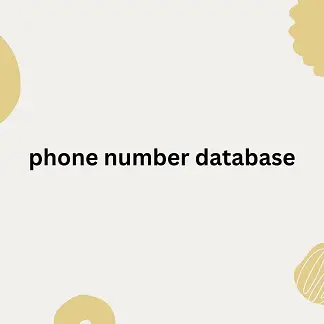Taking care of libraries is not for everyone. Librarians struggle to keep everything in perfect order for readers. And did you know that it is no different with e-Books?
The way libraries work is no secret.
Anyone interested in reading a book must be duly registered phone number database at the desired location, choose the book they like the most and request a loan. This methodology has been used for centuries, bringing knowledge to the most diverse types of people. But how can it be kept alive in the digital age? Who takes care of people’s registrations and book records? What is the format of these books? That is what we are going to show you today.
It’s so good to hold a book in your hand, smell it, see its pages age, and pass it on so that other people can share in the reading and knowledge you’ve gained. And now, with the Internet at your fingertips, carrying a relatively heavy book is part of your memory; you can have it digitally. Plus, with the digital age, you’re contributing to nature: fewer leaves, more trees.
Many people have adopted this practice of having their favorite book or study material in their pocket. And between us, it is much simpler and more practical. And not only in public libraries and bookstores, but many universities have adopted this ‘digital library’ method, more specifically, e-books.
E-Books are digital versions of books.
how to turn your linkedin connections into leads in 3 steps They are inexpensive to produce and usually cost less than printed books. They can be read on smartphones, tablets, computers, and digital book readers, such as e-Readers. However, it is worth remembering that if you prefer to read while sitting in your armchair and like to have the book in your hands, you can print the e-Book.
The formats available for freely distributed e-books can vary greatly, but the most common are PDF, DOC or ePub. Due to this variety of extensions, specific programs for reading e-books have been created. These programs are capable of recognizing and identifying all of these formats and presenting them to the reader in text form. Commercial books are available at the time of purchase, but the reader can only access them through the supplier’s APP.
But did you know that the people who take care of this ‘arsenal’ of e-books are librarians?
It’s a bit obvious to say this, but it’s interesting how the agent email list even on the internet we need a specialist to register users, record the thousands of existing book titles, organize each one in its proper section and they still need to have some time to devour each content, of course.
And you, how is your e-book reading going? Share with us your experience with this digital book.

